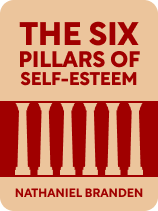

This article is an excerpt from the Shortform book guide to "The Six Pillars of Self-Esteem" by Nathaniel Branden. Shortform has the world's best summaries and analyses of books you should be reading.
Like this article? Sign up for a free trial here .
Are you an assertive person? What exactly does it mean to assert yourself? Why is self-assertiveness important?
Being able to assert yourself appropriately, even when this means opposing others, is an important element of a healthy, well-rounded personality. When you suppress your feelings and opinions, it undermines your personal integrity and self-esteem. This is the view of psychotherapist Nathaniel Branden.
Keep reading to learn what asserting yourself entails, why it matters, and how to improve your ability to assert yourself.
What Is Asserting Yourself?
Branden explains that, when you assert yourself, you express what you want, need, and value in appropriate ways. You don’t speak or act in ways incongruous with what you think or believe—and when this involves opposing others, you express this refusal carefully. For example, you stand up to your boss calmly, not by yelling at them.
(Shortform note: Asserting yourself might seem like it primarily requires confidence—but in Crucial Conversations, the authors add that expressing yourself to people who oppose you also requires humility: You must be humble enough to realize that you don’t know everything and that your opinion is a starting point for discussion.)
Specifically, Branden explains that, when you assert yourself, you do the following:
1. You assert your consciousness. At its core, asserting yourself is the choice to think for yourself and act accordingly. (This closely aligns with the definition of living with awareness because, as Branden notes, living with awareness is the “most fundamental act of self-assertion.”) You live in a way that demonstrates your values while simultaneously protecting your boundaries. For example, if you value family time, you set a hard stop on a late work meeting, and you stick to it.
(Shortform note: If you struggle to express your values in your romantic relationships, try following the tips Amir Levine and Rachel Heller suggest in Attached, like timing your discussion for when both parties are calm and collected.)
2. You act on your inner thoughts and feelings. Branden emphasizes that just having thoughts and feelings doesn’t constitute asserting yourself. It’s only when you act on them—like when you fight for your idea—that you assert yourself. (Shortform note: If you struggle to act on your ideas, The Confidence Code authors Kay and Shipman recommend starting with baby steps. For example, if you struggle to express your ideas in a meeting, start with lower stakes by suggesting where to go to lunch.)
3. You prioritize your own desires over others’ expectations because you understand that only you—not others—are accountable for your decisions. For example, you honor your calling to become an artist, even if your parents think doing so is selfish because you won’t be able to fund their retirement. (Shortform note: In The Four Tendencies, author Gretchen Rubin explains that some people readily respond to external expectations but struggle to respond to internal ones—no matter how important their desire is to them. Such people may only be able to prioritize their desires by building external accountability into their system. For example, you may only create art if you regularly tell your parents how much you produced.)
4. You try to master life’s challenges head-on. You learn new skills, improve those you already possess, and persist even if the learning process stumps you. (Shortform note: In Drive, Daniel Pink adds that you only work on your skills and persist despite struggling if you have a growth mindset—a belief that your abilities aren’t fixed and you can improve with effort.)
Why Asserting Yourself Matters
You’ve now learned what it means to assert yourself—but why does it matter?
Branden contends that various elements of asserting yourself improve your self-esteem. For example, living with awareness is an act of self-assertion, and we’ve already discussed in Pillar #1 how living consciously improves self-esteem.
(Shortform note: Branden’s discussion suggests that asserting yourself in general may improve your self-esteem by reinforcing its two elements: capability and worthiness. You only assert yourself if you believe that you’re capable of generating good ideas and that they’re worthy of expression.)
Branden further contends that asserting yourself is essential for a healthy society. If you’re from a society that prioritizes group harmony over individual expression, you might fear that asserting yourself will isolate you from your community. However, Branden argues, a healthy society requires people to assert themselves: A society is only healthy if its members are healthy, and healthy people value both their individuality and their relationships.
(Shortform note: Branden argues that asserting yourself improves the health of your society—but he disregards the immediate detrimental impacts that asserting yourself can have on the individual in certain cultures and for certain types of people. For example, studies show that women who are just assertive as their male peers aren’t as well-liked.)
Exercises to Improve How Well You Assert Yourself
Branden recommends the following four-week sentence-completion program to improve your ability to assert yourself.
Every weekday morning and evening, follow the instructions listed below. Then, each weekend, review your answers and write six to 10 answers to the following prompt: “If any of what I wrote this week is true, it might be helpful if I…”
Week 1: Create and answer four sentence stems that address what asserting yourself means to you, what would happen if you asserted yourself a little more today, what would happen if you were taught that your desires mattered, and what would happen if you behaved as they did.
Week 2: Create and answer four sentence stems that address what happens when you pay attention to or ignore your innermost desires, what would happen if you acted in accordance with your desires, and what would happen if you expressed yourself more regularly.
Week 3: Create and answer four sentence stems that address what happens when you ignore your views, what would happen if you expressed or ignored your desires, and what would happen if people knew your true, best self.
Week 4: Create and answer four sentence stems that address what would happen if you could access your true and best self, what happens when you convey your true self, what happens when you conceal your true self, and what would happen if you wanted a fuller life.
| Alternative Strategies for Asserting Yourself If you struggle to assert yourself in a specific situation, other strategies experts recommend include the following: – Use relaxation techniques like gentle breathing or meditation to alleviate any fear you may have around asserting yourself. – Practice what you’ll say beforehand by conversing with friends or writing a script. This boosts your confidence and makes your message stronger. – Temper your language so that you don’t come across as accusatory or aggressive. Use “I” statements like “I feel” instead of “you” statements like “You did this.” Similarly, saying “Part of me” instead of “I” can introduce ambivalence and make your message easier to stomach. – Be mindful of your non-verbal communication: Even if your words are calm, aggressive body language will muddy your message. In 12 Rules for Life, psychologist Jordan Peterson states that if you stand up straight, you’ll exude confidence. |

———End of Preview———
Like what you just read? Read the rest of the world's best book summary and analysis of Nathaniel Branden's "The Six Pillars of Self-Esteem" at Shortform .
Here's what you'll find in our full The Six Pillars of Self-Esteem summary :
- Exactly how to behave to improve your self-esteem
- Why you need to take responsibility for your life and actions
- Why so many self-esteem techniques don't work






